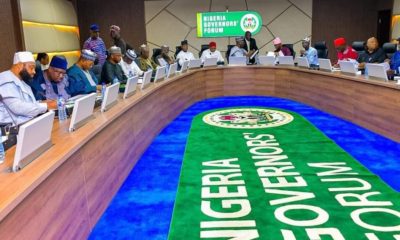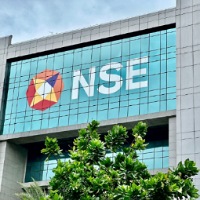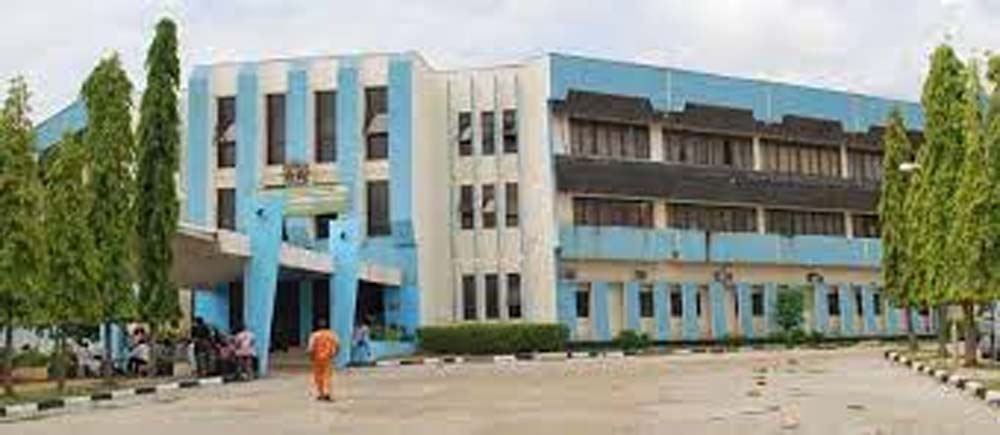Finance
Compulsory listing: Nigeria to lose N5tr tax revenue
LAGOS-Nigeria may lose N5 trillion in tax revenue if the Bill seeking to compel private companies to list on the stock exchange is passed by the National Assembly.
The Bill known as Private Companies Conversion and Listing Bill, 2013, seeks to compel private companies to convert to public companies by becoming listed on the Nigerian Stock Exchange (NSE).The thresholds for the mandatory conversion are: shareholders fund in excess of N40 billion Naira ($250 million), turnover or total assets of N80 billion ($500 million).
A private company that meets any of the thresholds must be converted to a public company and be listed on the NSE within 12 months. Failure to comply with the Bill attracts fine of 10 percent of annual turnover and imprisonment of at least 2 years.
It also contains a packet of incentives including five year tax incentive at a rate up to one-third of its applicable income tax for a company that lists at least 40 percent of its issued share capital.
Listing of 30 percent of issued share capital is eligible for a tax incentive of up to one-fourth of applicable income tax; while a listing of 20 percent of issued share capital is eligible for a tax incentive at a rate up to one-eighth of applicable income tax.
Expenses incurred in compliance with the Bill will be deductible for tax purposes in addition to the ex
isting capital gains tax exemption on share transactions. A tax expert, Mr. Taiwo Oyedele however faulted the Bill, saying it would lead to lose of tax revenue of up to N5 trillion.
Oyedele, who is the Partner and Head of Tax and Corporate Advisory at PwC Nigeria, noted that, “ Based on the 2013 tax revenue profile, oil and gas companies in Nigeria (all private) and non-oil private companies paid over N3 trillion in income taxes to the Federal Inland Revenue Service.
If these companies list at least 40 per cent of their shares and hence enjoy a reduction of one-third of their income tax rates, then Nigeria will lose at least N1 trillion annually for five years. Oyedele also noted that the proposed bill contradicts extant laws such as Section 25 of the Nigerian Investment Promotion Commission Act which states unequivocally that “no person who owns, whether wholly or in part, the capital of any enterprise shall be compelled by law to surrender his interest in the capital to any other person”.
He noted that if the implementation of the proposed Bill may lead to melt down in the Nigeria Stock Exchange. He said, “Another issue is whether the NSE has the absorptive capacity to cope with such a large scale listing. How much free cash flow do we have in the economy or that foreign investors will be willing to inject?
Due to the frenzy of a new listing, existing shareholders of listed entities will seek to sell off their stocks to buy the new shares. This in turn will depress the market given its relatively small size. Institutional investors like pension funds, banks, insurance and investment funds all have paucity of equity investable cash given the various legal restrictions and attractiveness of the money market that offers high returns and a much lower risk.”
Vanguard-
Business
Nigeria pays US$4.9 billion on petrol subsidy in 2024- NNPCL
It was however noted by Biztellers.com.ng, that although subsidy is back in effect, the main reason for that is the increasingly weak state of the Naira and the country’s extreme dependence on products importation. Also unlike the previous subsidy era, where several oil marketers were getting free subsidy refunds for unverified product importation, this subsidy era is witnessing only one importer, the NNPCL, which in effect is the sole receiver of government subsidies.
Yemie ADEOYE
INSPITE of the official position of the Nigerian government that the controversial petrol subsidy is gone for good as announced by the President on assumption of office, the state owned Nigerian National Petroleum Corporation Limited, NNPCL has disclosed that petrol subsidy is still fully operational in Nigeria, although, under a different identity.
Umar Ajiya, Chief Financial Officer at the NNPCL, disclosed that it cost the company a staggering N7.8 trillion (US$4.9) to cover this price gap in the first seven months of 2024.
Rather than simply referring to these claims as subsidies, he stated that the company is merely managing the price difference in petrol imports on behalf of the federation, stressing that this should not be misconstrued as a return to subsidy payments.
![]() This revelation has reignited discussions on whether the NNPC is indirectly offering subsidies, a concept typically defined as selling a product below its cost price.
This revelation has reignited discussions on whether the NNPC is indirectly offering subsidies, a concept typically defined as selling a product below its cost price.
Documents reviewed by Biztellers.com.ng showed that the term “subsidy” was used extensively in official correspondence between the NNPCL and the presidency, particularly in reference to the “shortfall.”
Recall that President Bola Tinubu reportedly approved NNPC’s request to utilize the 2023 final dividends due to the federation to offset these costs.
However, during a media briefing on Monday about the company’s 2023 audited financial statements, Ajiya refuted claims that the NNPC is involved in any subsidy scheme.
Ajiya further disclosed that the Nigerian government owes the NNPC N7.8 trillion ($4.9 billion) in subsidy-related debts for the period from January to July 2024.
In furtherance of his clarification to the News Agency of Nigeria (NAN), Ajiya insisted that no subsidy payments have been made to any marketer in the last nine years, citing the NNPC’s role as the sole importer of petrol under supply contracts.
He said, “In the last eight to nine years, NNPC Ltd. has not paid anyone a dime as a subsidy; no kobo has been disbursed by NNPC Ltd. in the name of subsidy. No marketer has received any payment from us for subsidy.”
“What has been happening is that we have been importing PMS, which has been landing at a specific cost price, and the government tells us to sell it at half price. So the difference between the landing price and that half price is a shortfall.
“And the deal is between the Federation and NNPC Ltd., to reconcile, sometimes they give us money, so there is no money exchanging hands with any marketer in the name of subsidy.”
Ajiya remained silent on how much of the $4.9 billion could have been remitted to the federation account if the NNPC had not been covering the “shortfall.”
It was however noted by Biztellers.com.ng, that although subsidy is back in effect, the main reason for that is the increasingly weak state of the Naira and the country’s extreme dependence on products importation. Also unlike the previous subsidy era, where several oil marketers were getting free subsidy refunds for unverified product importation, this subsidy era is witnessing only one importer, the NNPCL, which in effect is the sole receiver of government subsidies.
Banking
CBN Denies Currency Devaluation

The Central Bank of Nigeria (CBN) has refuted claims of devaluing the.
Earlier reports suggested that the CBN had devalued the Naira, lowering its exchange rate from N631 to the dollar, compared to the previous day’s rate of N461.60 at the Importers and Exporters (I&E) window.
However, the Central Bank of Nigeria (CBN) released a statement on Thursday through its Acting Head of Corporate Communications, Dr. Isa Abdulmumin, categorizing the report as false information.
In the statement titled ‘CBN Has Not Devalued The Naira’, he said the attention of the apex bank was drawn to the news report by an Abuja based newspaper edition of June 1, 2023, titled “CB Devalues Naira To 630/51”.
However, the CBN stated categorically that the news report was replete with outright FALSEHOODS and destabilizing innuendos, ‘reflecting potentially willful ignorance of the said medium as to the workings of the Nigerian Foreign Exchange Market.’
“For the avoidance of doubt, the exchange rate at the Investors’ & Exporters (I&E) window traded this morning (June 1, 2023) at N465/USS1 and has been stable around this rate for a while.
“The public is hereby advised to ignore the news report by Daily Trust in its entirety, as it is speculative and calculated at causing panic in the market,” the CBN spokesman added.
He, therefore, advised media practitioners to verify their facts from the Central Bank of Nigeria before publishing in order not to misinform the public.
Banking
BREAKING: CBN Increases Interest Rate By 0.5%

The interest rate in Nigeria has been raised to 18.5 percent, up by 0.5 percent, from 18 percent where it was pegged in March 2023.
The Central Banks of Nigeria’s (CBN) Monetary Policy Committee (MPC) resolved to this effect at its third meeting of 2023 in Abuja, on Wednesday.
Governor, CBN, Godwin Emefiele, made the disclosure in the communiqué of the MPC’s meeting, thereafter.
While engaging the media at the end of the two-day meeting, Emefiele, said the committee voted to keep the asymmetric corridor at +100 and -700 basis points around the MPR.
In the view of the MPC, rising inflation rate is traceable to the high energy cost and challenges around the supply chain, among others, which lie outside the corridors of the CBN.
Emefiele said, “The current trend in price development would continue to be monitored by the bank with greater collaboration with fiscal authority to address the drivers of inflation.”
Biztellers reports that the CBN had effected six consecutive interest rate increases, which has seen the rate move from 11.5 percent in March 2022 to 18.5 percent in May 2023.

























